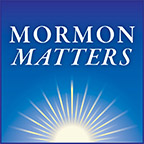- religion
- SEE MORE
- classical
- general
- talk
- News
- Family
- Bürgerfunk
- pop
- Islam
- soul
- jazz
- Comedy
- humor
- wissenschaft
- opera
- baroque
- gesellschaft
- theater
- Local
- alternative
- electro
- rock
- rap
- lifestyle
- Music
- como
- RNE
- ballads
- greek
- Buddhism
- deportes
- christian
- Technology
- piano
- djs
- Dance
- dutch
- flamenco
- social
- hope
- christian rock
- academia
- afrique
- Business
- musique
- ελληνική-μουσική
- World radio
- Zarzuela
- travel
- World
- NFL
- media
- Art
- public
- Sports
- Gospel
- st.
- baptist
- Leisure
- Kids & Family
- musical
- club
- Culture
- Health & Fitness
- True Crime
- Fiction
- children
- Society & Culture
- TV & Film
- gold
- kunst
- música
- gay
- Natural
- a
- francais
- bach
- economics
- kultur
- evangelical
- tech
- Opinion
- Government
- gaming
- College
- technik
- History
- Jesus
- Health
- movies
- radio
- services
- Church
- podcast
- Education
- international
- Transportation
- Other
- kids
- podcasts
- philadelphia
- Noticias
- love
- sport
- Salud
- film
- and
- 4chan
- Disco
- Stories
- fashion
- Arts
- interviews
- hardstyle
- entertainment
- humour
- medieval
- literature
- alma
- Cultura
- video
- TV
- Science
- en
527: (Encore) A Christmas Primer: Exploring the Nativity in Scripture, Legend, History, and Hearts--Part 1

This is an encore presentation of a December 2011 Mormon Matters podcast episode examining the Christmas story as it traditionally gets told\u2014looking closely at what the scriptures actually say and do not say about the birth of Jesus and all the pieces of this familiar story. For instance, how do the Matthew and Luke accounts differ\u2014even irreconcilably? What are possible motives behind the Gospel writers\u2019 decisions to shape the stories the way they did? What about Jesus\u2019s place of birth and the reason the family was in Bethlehem (if they were)? Was there a great tax and registration? What about \u201cno room at the inn,\u201d the manger, the star, the magi, the story of Herod killing all male infants under two years old? How did Christmas come to be held on December 25th?
In this episode, Mormon Matters host\xa0Dan Wotherspoon and panelists\xa0Kristine Haglund,\xa0Jared Anderson, and\xa0Zina Petersen\xa0explore all these questions plus lead a fascinating tour into other parts of the Christmas story. Why are only five women mentioned in the Gospels\u2019 presentations of Jesus\u2019s lineage\u2014and why are the ones listed all women with \u201cquestionable\u201d sexual pasts? What are the Twelve Days of Christmas? What is the \u201cImmaculate Conception\u201d and how does it affect theology about Mary and ideas about the Eucharist and other religious devotions? How has pagan history and ideas folded into the history of \u201cChristmas\u201d (not Jesus\u2019s birth but the celebration of it)? The panel discusses solstices and equinoxes, the meshing of calendaring systems, the link between carnivals and holy days, shepherds\u2019 presents to the Christ child, and even a longstanding tradition of \u201cghost story\u201d tie-ins with Christmas that Charles Dickens resurrected. Why was there a period of time in which Christmas was illegal?
The panelists also talk about Christmas music and other aesthetic elements that make this\xa0season so compelling for many people. Part of that discussion answers how and why the host and panelists and many other Christians throughout history, knowing all that they know about what likely is and is not factual about traditional accounts, still celebrate Christmas and zestfully sing carols alongside those for whom the stories are less complicated. How can those who understand that we are during this time dealing primarily in mythos rather than history (not only with the Christian story but also something like Santa Claus) still experience this season as spiritually enriching?
This is a two-part episode to be savored again!